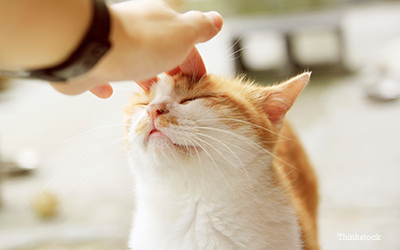
The goal of vaccinating your adult cat is to prevent as many diseases as possible.
What vaccines are even available for your adult cat?
There are lots of vaccines available, but not all cats need to be vaccinated for all diseases all the time. There are two general groupings of vaccinations;
- Those against so called “core” diseases
- Those against “non-core” diseases
According to the American Association of Feline Practitioners (AAFP), the core vaccines (those that are recommended for ALL cats) are feline panleukopenia virus (FPV), feline herpesvirus-1 (FHV-1), and feline calicivirus (FCV) as well as Rabies.
There are a number of non-core feline vaccines available, but most are not widely recommended. The non-core vaccine most often recommended is feline feline leukemia virus (FeLV), especially for kittens and cats under one year of age who are most susceptible. Feline immunodeficiency virus (FIV)1 vaccination is more common outside North America. and in some cases
How do you know which non-core vaccines are appropriate for your cat?
Vaccines recommended may vary; your cat’s age and general health need to be considered.
You need to talk to your veterinarian. He knows you and your cat. That makes your veterinarian the best source of individualized advice on this subject. The two of you will need to determine the likelihood of your cat being exposed to the non-core illness listed above and weigh those risks against any side effects associated with the vaccines themselves. Your discussion should include a number of topics, but probably the most important is whether your cat is truly an “indoor cat” or spends any time out of doors, where other cats are a concern.
Once is not enough for vaccinations
Whatever vaccinations you decide on with your veterinarian, revaccination is needed from time to time to keep your cat’s immunity high. Different vaccines (even different versions of one type of vaccine) require different re-vaccination/booster schedules. Your cat’s health and lifestyle will change over time. That means that at every annual exam appointment with your veterinarian, you should revisit your cat’s risk assessment and tailor ongoing vaccination recommendations accordingly. This will assure you that your cat remains appropriately vaccinated throughout life.
Do vaccinations have risks?
As with any medical procedure there are some risks associated with vaccines. Those risks minor, transient effects to serious adverse effects:
- Lethargy
- Anorexia
- Fever
- Regional lymphadenomegaly
- Soreness
- Hair loss or color change at the injection site
- Respiratory disease
Allergic (hypersensitivity) and immune-mediated reactions may include:
- Failure to immunize fully
- Tumorigenesis (vaccine-associated sarcoma or other tumors)
If you have any questions or concerns, you should always visit or call your veterinarian -- they are your best resource to ensure the health and well-being of your pets.
Resources:
